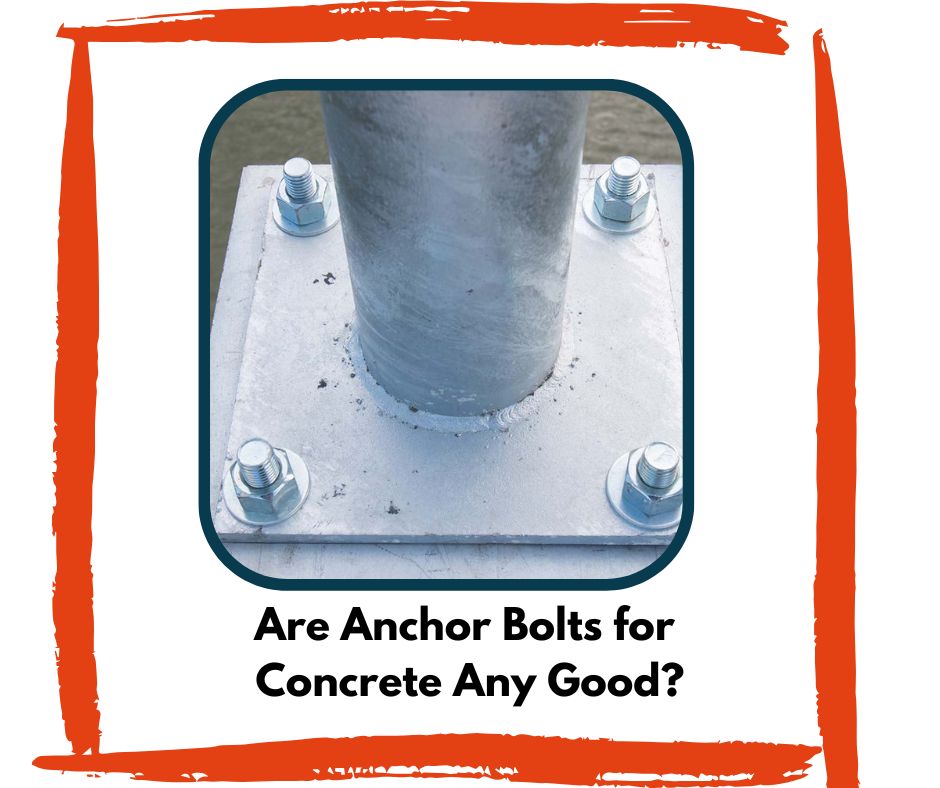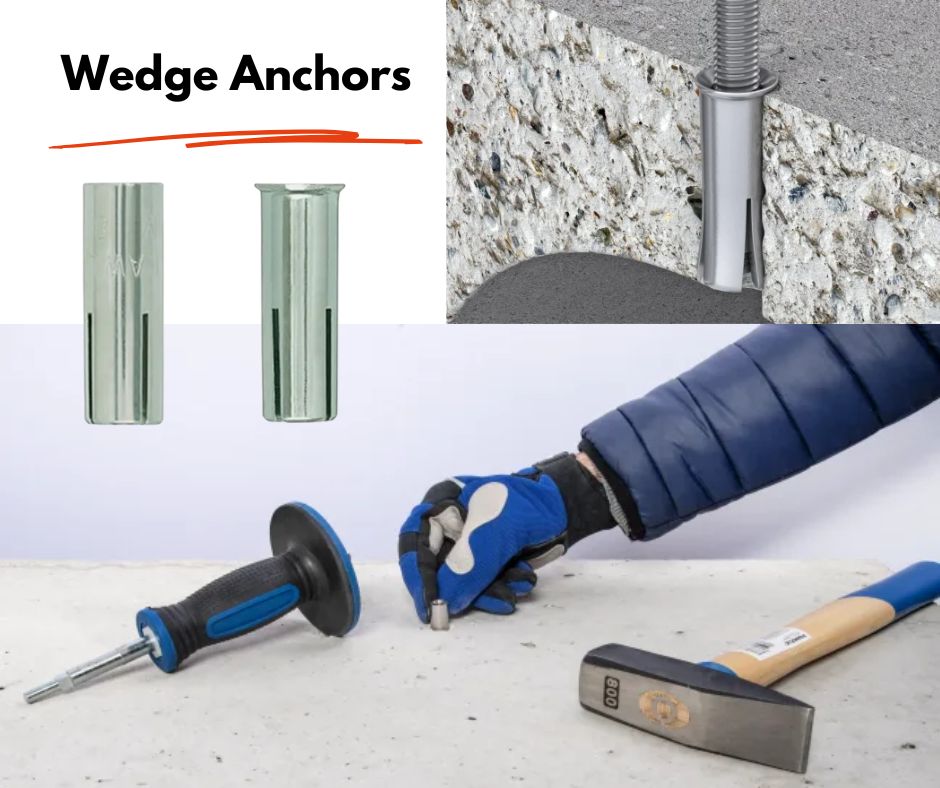Are Anchor Bolts For Concrete Any Good?
Are Anchor Bolts for Concrete Any good?
Anchor bolts are a vital component in construction, offering a reliable way to attach structures and materials to concrete. At Fix and Fast our customers often ask 'Are they any good'.
In this blog we explore what anchor bolts are, the different types available, their benefits, and how to install them effectively.
Along with answering that question 'Are Anchor Bolts for Concrete Any Good'

What are Anchor Bolts?
Anchor bolts are heavy-duty fasteners designed to secure different structures or elements to concrete, masonry, or stone surfaces. Their main function is to provide a strong attachment point, distributing loads such as weight and tension into the concrete substrate.
This helps to ensure the stability and integrity of the connected structure. Anchor bolts are versatile and widely used in various construction projects, from securing household items to fixing large structural components in industrial settings.
Common Types of Anchor Bolts
There are several types of anchor bolts each designed for specific applications. The ones that are enquired about the most at Fix and Fast are....
Wedge Anchor
Wedge Anchors are inserted into pre-drilled holes in concrete. Then as the bolt is inserted and tightened, a wedge expands against the sides of the hole, securing the bolt firmly in place. These are ideal for heavy-duty applications that require a strong hold.

Sleeve Anchor Bolts
Sleeve Anchor bolts consist of a bolt inside a cylindrical sleeve. When tightened, the sleeve expands against the hole, providing a secure grip. They are versatile and the bolt can be removed and replaced if needed, making them suitable for applications requiring future adjustments.

Hook Anchor Bolts
Hook anchor bolts are curved at the top, creating a hook-like end. These are ideal for applications requiring a secure fit in brick, concrete, or block, such as hanging equipment or supporting cables. An alternative to the hook anchor is an Eye Bolt anchor – featuring a loop (or ‘eye’) at one end

Benefits of Anchor Bolts for Concrete
Anchor bolts provide several advantages, making them a popular choice in construction projects:
Enhanced Stability
Anchor bolts offer a secure connection between structures and concrete, enhancing stability. They distribute the load across a wide area, reducing the risk of damage or failure.
Versatility
These bolts can be used with a variety of materials, including concrete, brick, stone, and block. This makes them suitable for diverse applications, from light-duty wall hangings to heavy structural installations.
Durability
Made from strong materials like stainless steel or galvanized steel, anchor bolts are built to withstand harsh environments and resist corrosion, ensuring a long-lasting and reliable connection.
Easy to Install and Replace
Many types of anchor bolts, like sleeve bolts, can be easily installed and removed, offering flexibility for projects that may require adjustments or replacements in the future.
How to Fit Anchor Bolts
Installing anchor bolts correctly is crucial for ensuring a strong and secure hold. Here's a step-by-step guide to fitting anchor bolts into concrete:
- Read the Manufacturer's Instructions
Different anchor bolts may have specific requirements, such as the size of the drill bit or the depth of the hole. Always refer to the manufacturer's instructions for accurate installation.
- Drill the Hole
Using a masonry bit, drill a hole in the concrete to the specified depth. Ensure the hole is slightly deeper than the bolt length and at least twice the diameter of the bolt. Clean out any debris, such as dust, to allow for a proper fit.
- Insert the Anchor Bolt
Place the anchor bolt into the drilled hole. If necessary, lightly tap the bolt with a hammer to ensure it reaches the bottom of the hole.
- Tighten the Bolt
Attach a washer and nut to the top of the bolt, then use a wrench to tighten the nut. Be careful not to over-tighten, as this can reduce the holding capacity. The appropriate torque level will usually be indicated in the manufacturer’s instructions.
- Check the Secure Fit
After tightening, remove the washer and nut if needed, and verify that the anchor bolt is firmly in place.
The bolt should provide a strong, secure hold for whatever structure or element is being attached.
In Summary: Are Anchor Bolts for Concrete Any Good?
Yes, absolutely! Anchor bolts are highly effective and essential for securely fastening structures to concrete.
Their ability to provide a strong, durable, and versatile connection makes them an invaluable component in both small and large-scale construction projects.
With a variety of types available, there is an anchor bolt suited for almost every application, making them a reliable choice for ensuring stability and safety in building projects.
Anchor bolts are available from Fix and Fast both in bulk and in non box quantities. Fix and Fast are experts in fixings and fasteners with almost 80 years of experience, now showcasing this expertise on TikTok.
With Trade Accounts available for even more savings - choose Fix and Fast for all your fixings and fastener requirements







